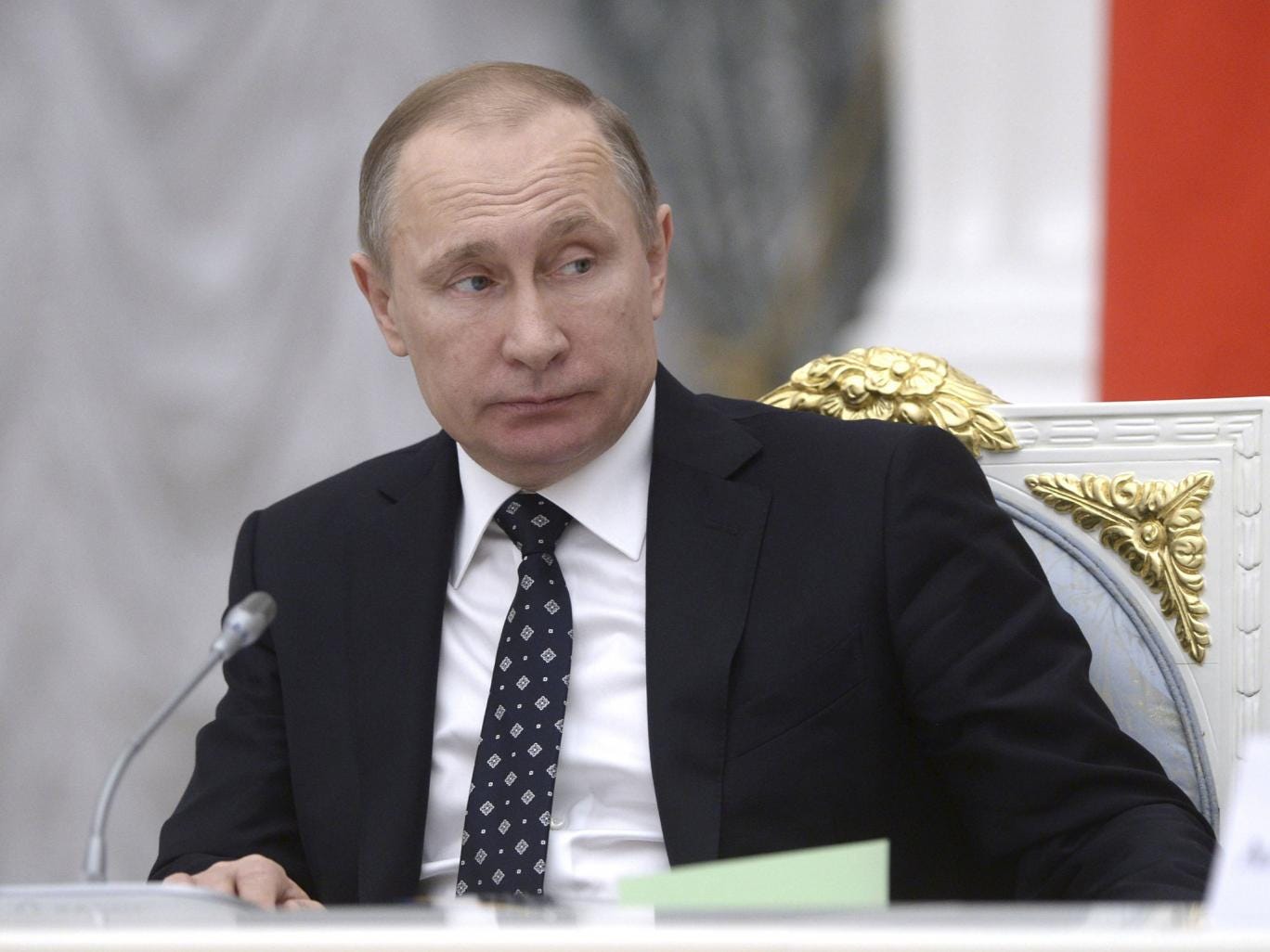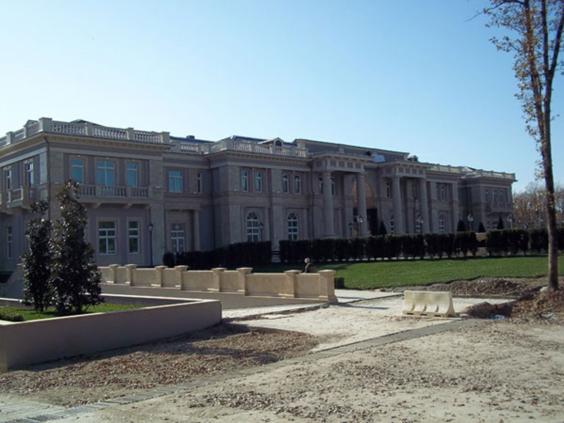Vladimir Putin 'corruption': Five things we learned about the Russian President's secret wealth
http://www.independent.co.uk/news/people/vladimir-putin-corruption-five-things-we-learned-about-the-russian-presidents-secret-wealth-a6834171.htmlVladimir Putin 'corruption': Five things we learned about the Russian President's secret wealth
A BBC investigation speaks to exiled former Kremlin insiders, who allege widescale corruption under Putin's regime
Adam Withnall @adamwithnall
Tuesday 26 January 2016 08:47 GMT

Vladimir Putin has a vast personal fortune and may be one of the richest men in the world, according to a number of former Kremlin insiders.
From their exiles around the world, they spoke to the BBC for a Panorama investigation into the alleged corruption of the most powerful man in the world. Here's what we learned.

Sergei Kolesnikov told the programme he worked for the Kremlin to collect money from the super-rich, which they believed was to be spent on healthcare, but which was ultimately used “to help build a $1 billion palace for Mr Putin on the Black Sea coast”.
The BBC said it had seen documents from one of the offshore companies that diverted millions of dollars to the palace, which was constructed during Mr Putin’s first term as president.
Igel
(35,307 posts)Why people think that wealth must be personally held to be important has always eluded me.
"But Leftist Leader X has taken a vow of poverty and his pay is $0.01 cent per year. He's so noble." But he lives in a $200 million mansion, is fed three chef-prepared meals per day, vacations in any of five resorts (which are cleared out for just him and his family, plus an barebones staff of 125 workers), and basically has every need provided for. We grant indulgences to those we like, even if it's just their verbiage. Now, if a rightist leader Y did the same thing, we'd be all over him for hypocrisy. We have zero tolerance for those we consider opposition. (Just look at how Russia flip-flopped in the last 8 years. Well, Russia was unchanged. It was the *perception* of Russia that flip-flopped.)
In centralized democratic capitalist societies, money gives you political power. Even if you don't formally possess that power, you can control it. It's hard to do that when power's decentralized.
It non-democratic command-and-control societies, political power gives you money. Even if you don't formally own that money, you can control it. Such societies are invariably centralized.
It makes comparison difficult unless you control for the different conditions. Can you compare apples and oranges? Sure. As long as you know how to. Vitamin C levels, fiber, micronutrients, growing conditions. Knowledge has to inform the comparison.
If you transition from a centralized non-democratic command society you usually find that those who controlled wealth because they had power find ways of converting one to the other. Russia in the '90s was a problem because the two systems clashed. The powerful suddenly had to find ways to cash in their power and then use that cash to control politics. But new Russians found ways to get cash without cashing in power, and sometimes had a better understanding of how to control political power. Spheres of influence and territorial lines, both geographic and economic, weren't established. And the government was composed mostly of relatively powerless people who were suddenly given power and had to figure out how to deal with the powerful who would control them.
Things were much better in 1999 than in 1993. Much, much better, and getting better. That wasn't the perception--humans are bad at statistics and their perceptions are based on a narrow sampling that overwhelms the actual facts when presented--and swallowed what Putin was chucking their way. And they've been eagerly swallowing ever since then.
Some of the best fake news, swallowed by Russians and Americans alike, was that Putin managed to do in the oligarchs. There were some stunning show trials, usually by those who couldn't forge an alliance with Putin. Sometimes Putin meddles, just to put one in his place or show that he can. But by and large, the oligarchs that met approval and could play nice with each other are doing just fine. He provides them cover and handles the big picture, they get the control they need and focus on their demesnes. From time to time he needs to thwack one; from time to time he throws one a bone. Start up (or "up-start," whichever) companies that get to the right level in terms of income and size must join the consortium: if they don't want to, they're ground into kotlety and some oligarch gets a free lunch. If they do, they're junior partners and may stay there or work their way up, through loyalty and cooperation.
Putin's house was basically an informal tax. It was tribute to their leader.
Modern Russia is, in many ways, like Soviet Russia. That should tell you that the nature of authoritarianism is what matters, not the trite details of political structure and economics. In ways economic, it's better than Soviet Russia--command-and-control economies don't decentralize that kind of decision making to stakeholders and those with the necessary information. But in terms of politics and social control, and even high-level economic control, Russia is like the USSR. It's also very much like China, just some of the levers of power are made of different materials and labeled in different languages. One's "capitalist" verging on "fascist," the other we still think of as "communist." Labels hide reality.